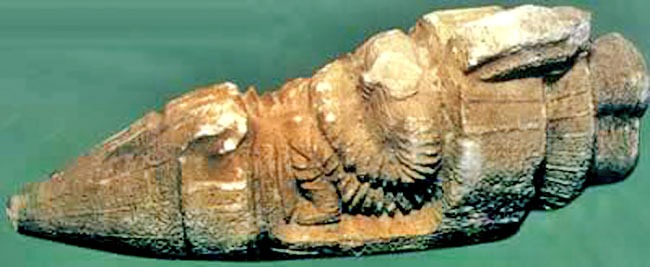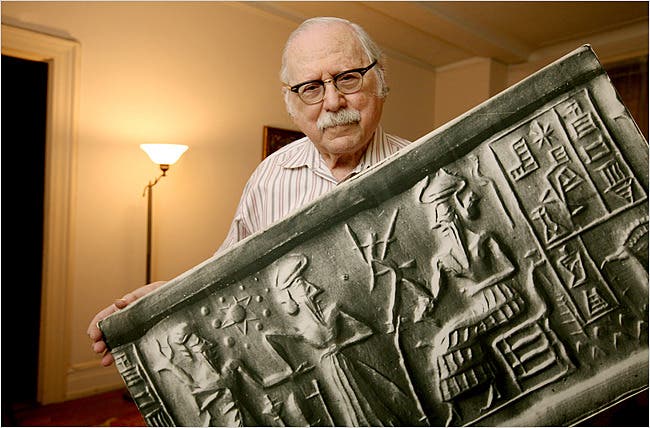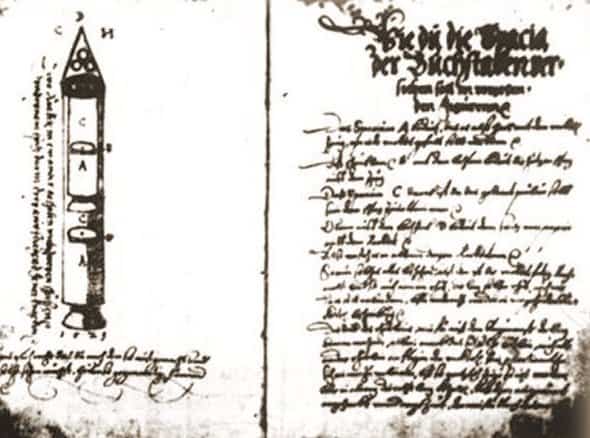Mystery Of 3,000-Year-Old Spaceship Artifact & Fuel Used By Ancient Aliens
A 3000-year-old spaceship-looking artefact is one of the most famous vehicles that supposedly prove the fact of the ancient aliens’ arrival on Earth. Zecharia Sitchin was the first person that drew attention to it, having discovered the artefact in Turkey in 1973.
This mysterious stone artefact incredibly resembles a rocket with modern engines, in which a man is shown sitting in a spacesuit. It could be the ultimate proof for the ancient astronaut theorists that the otherworldly beings visited Earth in the distant past.
According to Sitchin, the artefact was found in a town called Tushpa, modern-day Toprakkale not far from Van Lake. In the 9th century BC, Tushpa was the capital of the Kingdom of Urartu.

The Urartian kingdom, also known as the Iron Age Kingdom or the Kingdom of Van, was located near Van Lake in Armenian Highlands. The earliest document mentioning the land of Urartu can be found in Assyrian sources.
The people of Urartu were famous metalworkers, spoke a language that was related to Hurrian (a language that has no other known connections), and they adapted the Assyrian cuneiform script for their own purposes.
The amazing stone artefact made of soft yellowish-brown stone is estimated to be around 3,000 years old, although some researchers speculate that the object could be much older than they now believe. It is stored in the Istanbul Archaeology Museum in Turkey and has never really been on public display.
Sitchin wrote in his book “The Earth Chronicles Expeditions” that the rock artefact is a sculpted scale model that resembles a space vehicle. It is 23 cm long, 9.5 cm high and 8 cm wide. He further mentioned that at the back of the object, there was a bug exhaust engine surrounded by four small exhaust engines. The rocket ship has room for a pilot but unfortunately, the head of the pilot was missing.

Since the spaceship-looking rock sculpture has room for the pilot, it signs that ancient astronauts arrived on Earth in the distant past. The pilot reportedly sits in the space capsule with his legs bent up toward his chest. He wears a skin-tight pressure suit that fully covers his body.
Knowledge of ancient people about rocketry was spectacular. You may have heard of the ancient nuclear war hypothesis or ancient flying vehicles, which can also be found in ancient texts. It is said that our ancestors could even move in space and had knowledge about the universe that surpasses all modern knowledge. In 2016, Iraqi Transport Minister Kazim Finjan made a sensational statement during his business trip to Dhi Qar. According to him, the Sumerians had their own spaceport and actively travelled, including outside the solar system.
While on the other hand, the Sibiu manuscript, discovered in 1961, describes in detail the principles of rocketry, and there are also drawings of models of space three-stage rockets.
The document contains a description of technologies for combining fireworks with weapons and even the construction of a hang glider, as well as for instructions for creating fuel mixtures as liquid rocket fuel. Though it is said that a man named Conrad Haas wrote the manuscript, many people believe that it was written using some even more ancient texts.

Ancient astronaut theorists are convinced that ancient gods had space vehicles to travel into outer space, but how did they manage to fuel their spaceships? In 2015, a team of archaeologists discovered a large quantity of liquid mercury beneath the Mexican pyramid.
There are several occasions where mercury is found in the form of a powdery red pigment called cinnabar in the Mesoamericans’ tombs, but finding it in the liquid form is extremely rare. The presence of liquid mercury might have been a part of the propulsion system used by the Aztecs.
Swiss author Erich von Däniken said: “The liquid mercury was not only found in Teotihuacan, according to old Indian texts, but it was also once part of the propulsion system which extraterrestrials used for their flying machines.”
According to Professor Shivanandam from Sri Chandrasekharendra Saraswathi Viswa Mahavidyalaya (Sri Chandrasekharendra Saraswathi University, Kanchipuram, India), around 7000 years ago, people in India knew how to create Vimanas (flying machines) to traverse the sky and beyond using a technology that NASA is still trying to harness today.